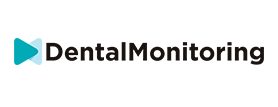Oral Hygiene: Teeth Cleaning, Flossing, Mouthwash
Oral hygiene is a critical aspect of overall health and well-being. Poor oral hygiene can lead to various dental problems, including cavities, gum disease, and bad breath, which can have a significant impact on an individual’s quality of life. While most people understand the importance of brushing their teeth, there are other essential aspects of oral hygiene that are often overlooked, such as flossing and using mouthwash. In this article, we will explore the importance of teeth cleaning, flossing, and using mouthwash and stress the significance of visiting a professional dentist for these activities.
Teeth Cleaning:
Brushing your teeth twice a day is one of the most important things you can do for your oral hygiene. Brushing helps remove plaque and bacteria from the surface of your teeth and prevents them from building up and causing tooth decay and gum disease. It’s crucial to use fluoride toothpaste, as fluoride helps to strengthen your tooth enamel and protect your teeth from decay. Additionally, using a soft-bristled brush is essential, as it’s gentler on your teeth and gums, preventing damage.
However, brushing your teeth alone is not enough to maintain good oral hygiene. Regular visits to a dental professional for professional teeth cleaning are necessary to ensure that any plaque or tartar build-up is removed from hard-to-reach areas of your mouth. A dental professional has the expertise, tools, and techniques necessary to clean your teeth thoroughly, reducing the risk of developing dental problems.
Flossing:
Flossing is an essential aspect of oral hygiene that many people overlook. Flossing helps to remove food particles and plaque from between your teeth, which your toothbrush cannot reach. By removing this debris, you can prevent gum disease, tooth decay, and bad breath. It’s essential to floss at least once a day, preferably before brushing your teeth, to ensure that your teeth are cleaned thoroughly.
Mouthwash:
Mouthwash is an excellent addition to your oral hygiene routine, as it helps to kill bacteria that cause bad breath and gum disease. It’s crucial to choose a mouthwash that contains fluoride, as fluoride helps to strengthen your tooth enamel and protect your teeth from decay. Additionally, some mouthwashes contain antiseptic ingredients, which can help to reduce the amount of bacteria in your mouth, preventing gum disease.
Professional Dental Care:
While practicing good oral hygiene at home is crucial, it’s essential to visit a dental professional regularly. A dental professional has the expertise and knowledge necessary to identify and treat dental problems, such as cavities and gum disease before they become more severe. Regular dental check-ups can also help to identify other health problems, such as oral cancer, early, increasing your chances of successful treatment. Learn more.
Furthermore, a dental professional can provide advice on how to improve your oral hygiene routine and recommend products that are best suited to your individual needs. They can also provide deep cleaning services, such as scaling and polishing, to remove any plaque or tartar build-up that regular brushing and flossing cannot.
In conclusion, good oral hygiene is essential for overall health and well-being. Brushing your teeth twice a day, flossing, and using mouthwash are critical aspects of maintaining good oral hygiene. However, it’s essential to visit a dental professional regularly for professional teeth cleaning and to identify and treat dental problems before they become more severe. By working together, you can achieve optimal oral health, reducing the risk of dental problems and improving your quality of life. Next article.









